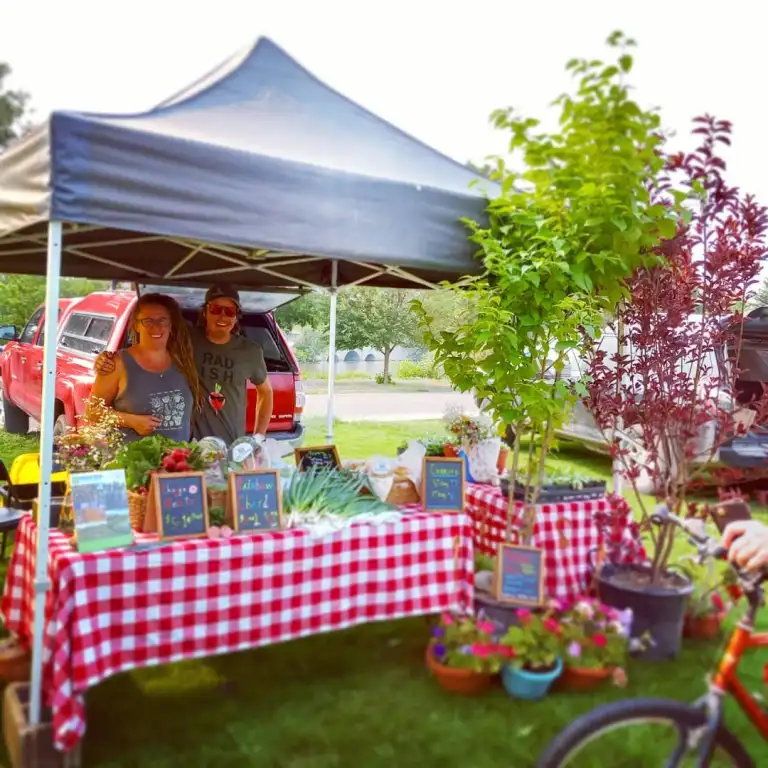Growing Mushrooms, Trees, and Vegetables in Relationship With Land at Shields River Farm and Nursery



Jessica and Tyson Stillman founded Shields River Farm and Nursery in Wilsall, MT in the summer of 2020, with the intent of creating a business that returns the abundance of the ecosystem to the human and natural community.

Tyson grew up on a ranch outside of Livingston, and says that ranching never really spoke to him. After taking a horticulture class in high school, he developed an interest in growing food in relationship with the landscape, and has been working in local plant nurseries for years. Tyson incorporates his background in Sustainable Food Systems from MSU and mycology in his work managing the landscape.
Right now, the tree nursery is the primary part of their business, but it is interwoven with growing local food. They plan to expand beyond their half-acre vegetable garden to include a CSA in future years, and planted hundreds of fruit trees this year.
“Rural America is known for being a food desert and rural Montana is no different. Part of why we started our business is to play a role in the food system and help fill that void, along with other great producers in the Shields Valley,” says Tyson.

With established stands of cottonwood trees along the river that runs through their property, Jessica and Tyson are creating a tight ecological loop that feeds the existing ecosystem.
“Cottonwoods are our native poplar in riparian zones. They’re a tree that I associate with Montana, and they’re great for restoring habitat. Our property has a significant stand of native cottonwoods, some young and some very old and starting to die. They’re a great source for mushroom cultivation. Lions mane, chestnut, oyster mushrooms.”
The abundant carbon in the old cottonwoods helps nourish the fungus that grows naturally on the old wood. Tyson processes old trees into mulch, then sterilizes and inoculates the wood chips to facilitate the growth of edible mushrooms.

Meanwhile, he inoculates the mulch on walkways with soil-loving fungi like Shaggy Mane and Wine Caps.
“I want to sell bags of inoculated wood chips so people can inoculate their own gardens. The mycological community is good like that. It’s all about spreading the passion of mushroom cultivation.”
In Wilsall, where mushrooms are not a common crop, people are at first turned off by them.
“But then they try them and they’re delicious,” Tyson recalls from the summer.

Jessica manages the Shields Valley Farmers Market, where she continues to build on her background in non-profit work. She is excited by the prospect of building a community around local food, making the market accessible and appealing to more people. This summer, the Market switched between Wilsall and Clyde Park every week to meet communities where they were.
Each time a customer comes to the tree nursery asking for a specific tree, Jessica and Tyson view it as an opportunity to educate people on native Montana trees that are adapted to Montana climates. They source bristlecone pines and buffaloberry shrubs from seeds in the Gallatin Valley and Montana’s highline. Tyson is particularly drawn to magpies, the birds often seen along rivers and grasslands around Montana, for their symbolism of adaptability and resilience.
“Our trees are adapted to harsh Montana climates just like magpies are. Their resilience is at the heart of what we do.”
“Our trees are adapted to harsh Montana climates just like magpies are. Their resilience is at the heart of what we do.”



Shields River Farm and Nursery is now a partner of Abundant Montana. We’re so excited to have them as a part of our growing local food network!
Listed at Abundant Montana!
